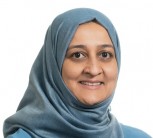Facing the reality of a diagnosis of Motor Neuron Disease (MND) and preparing for the possibility of losing one's ability to speak is extremely difficult. Although not everyone with MND experiences problems with speech, for most people muscles in the mouth, throat and chest are affected. The physical impairment that results from MND can also impact on communication through gestures and facial expressions. The loss of speech can be frightening and hard to adjust to. Just imagine not being able to make people understand what your needs are (especially during hospital stays), and in emotional terms, such as losing the ability to express your personality, make jokes and take part in normal conversation.
Message banking involves the digital recording and storing of words, phrases, sentences, personally meaningful sounds and stories (often referred to as 'legacy messages'). When their speech starts deteriorating or becomes completely unintelligible, message banking allows the person to retrieve and 'speak' these messages using their own voice, natural inflection and intonation, through a variety of augmentative and alternative communication (AAC) systems.
Ms Imke Oosthuizen, a master's student at the Centre for Augmentative and Alternative Communication at the University of Pretoria, recently conducted a study on message banking, a relatively new early intervention strategy that could simplify life for persons with MND by facilitating more effective communication and sustained social closeness.
According to Dr Shakila Dada, Ms Oosthuizen's research supervisor, message banking is an important early intervention strategy for people with MND. It is also a relatively low-technology strategy that can be learnt easily and quickly and it can be used with a smart phone or any other smart device.
Ms Oosthuizen's study focussed on comparing the perceptions of persons with MND, those of their significant others and those of speech-language pathologists in South Africa with regard to message banking. Most persons with MND and their significant others reported that they had never heard of AAC or message banking, while many speech-language pathologists knew very little about message banking.
This study provided valuable insights into the need for training in the use of message banking for people with MND and in the process of selecting the categories of messages to bank. Prof Dada notes that the gap in training can easily be filled through continuing professional development and undergraduate training.
The Centre hopes to continue in this line of research at PhD level in the future.
Facing the reality of a diagnosis of Motor Neuron Disease (MND) and preparing for the possibility of losing one's ability to speak is extremely difficult. Ms Imke Oosthuizen, a master's student at the Centre for Augmentative and Alternative Communication at the University of Pretoria, recently conducted a study on message banking, a relatively new early intervention strategy that could simplify life for persons with MND by facilitating more effective communication and sustained social closeness.
Message banking involves the digital recording and storing of words, phrases, sentences, personally meaningful sounds and stories (often referred to as 'legacy messages'). When their speech starts deteriorating or becomes completely unintelligible, message banking allows the person to retrieve and 'speak' these messages using their own voice, natural inflection and intonation, through a variety of augmentative and alternative communication (AAC) systems.
Dr Shakila Dada, Ms Oosthuizen's research supervisor, says that message banking is an important early intervention strategy for people with MND. 'It is also a relatively low-technology strategy that can be learnt easily and quickly and it can be used with a smart phone or any other smart device.'
Ms Oosthuizen's study focussed on comparing the perceptions of persons with MND, those of their significant others and those of speech-language pathologists with regard to message banking. Most persons with MND and their significant others reported that they had never heard of AAC or message banking, while many speech-language pathologists knew very little about message banking.
This study provides valuable insights into the need for training in the use of message banking for people with MND and in the process of selecting the categories of messages to bank. Prof Dada notes that the gap in training can easily be filled through continuing professional development and undergraduate training.
The Centre hopes to continue in this line of research at PhD level in the future.
Dr Shakila Dada
July 25, 2016

 Story
Story
This edition is curated around the concept of One Health, in which the University of Pretoria plays a leading role globally, and is based on our research expertise in the various disciplines across healthcare for people, the environment and animals.
 Story
Story
Paediatric neurosurgeon Professor Llewellyn Padayachy, Head of the Department of Neurosurgery at the University of Pretoria’s (UP) Steve Biko Academic Hospital, is redefining how brain-related diseases are diagnosed and treated, especially in low-resource settings. He’s at the forefront of pioneering work in non-invasive techniques to assess and measure raised pressure inside the skull,...
 Infographic
Infographic
Africa faces immense challenges in neurosurgery, such as severe underfunding, a lack of training positions and a high burden of disease. There is one neurosurgeon per four million people, far below the WHO’s recommendation of one per 200 000. This shortage, compounded by the lack of a central brain tumour registry and limited access to diagnostics, severely impacts patient outcomes.
Copyright © University of Pretoria 2025. All rights reserved.
Get Social With Us
Download the UP Mobile App